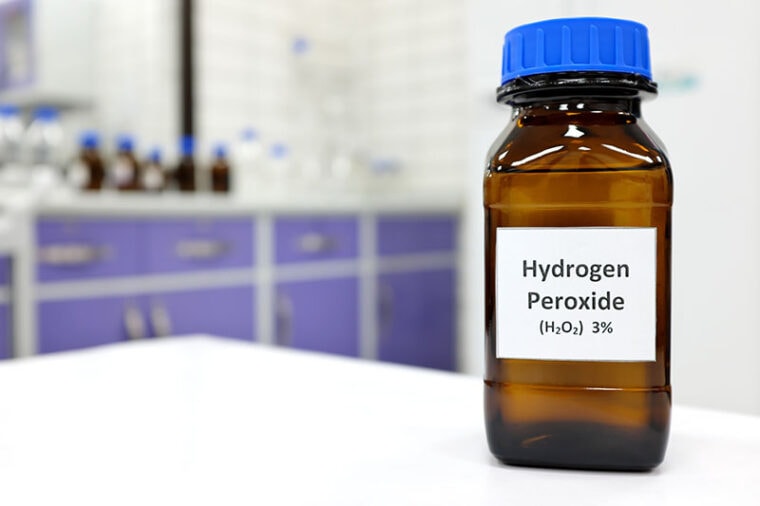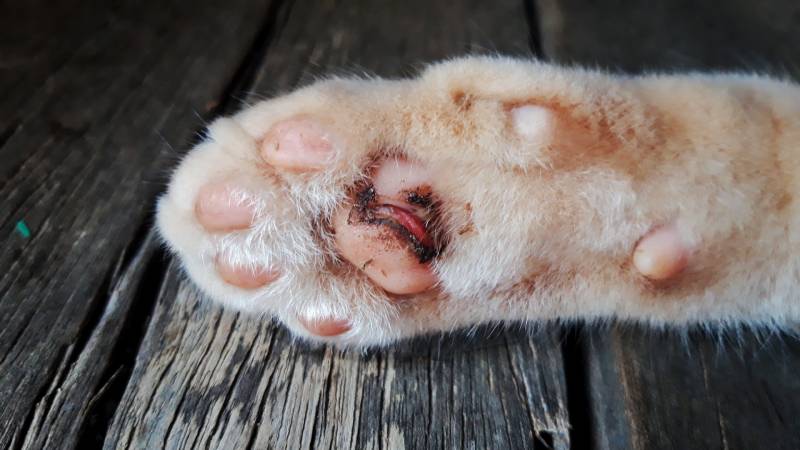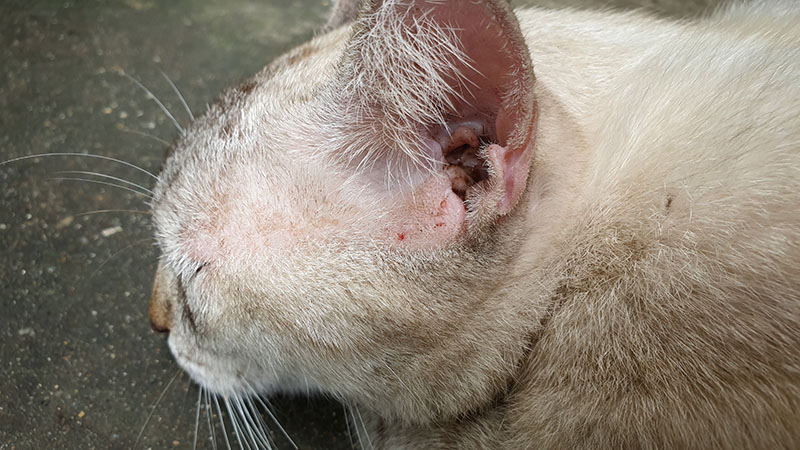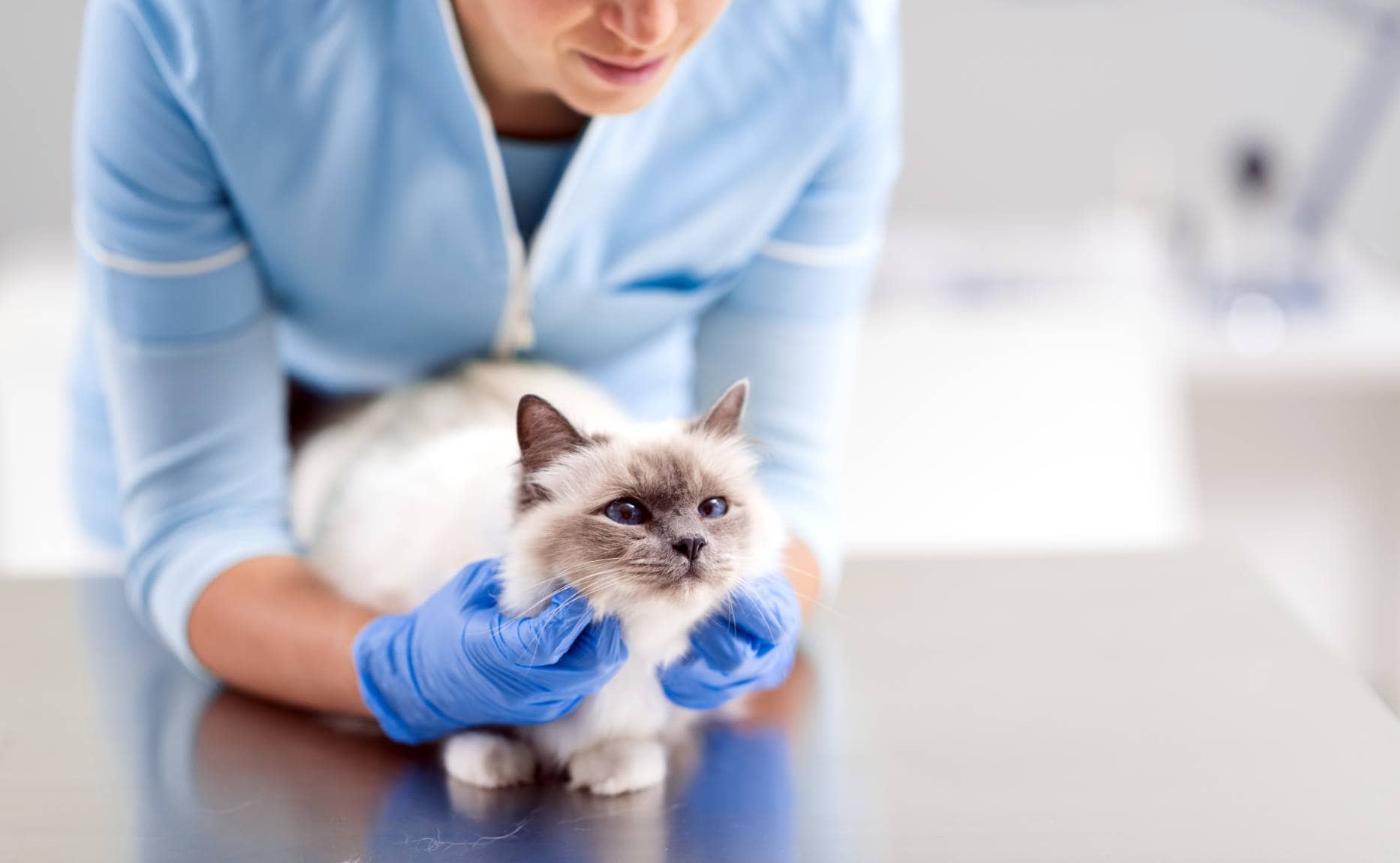
You might be familiar with hydrogen peroxide being used to aid wound healing and wonder if you can use it on your cat. Unfortunately, you shouldn’t use hydrogen peroxide on your cat. However, we’ll examine the risks of using hydrogen peroxide and which alternatives you should use instead.
Your Cat and Wound Healing
It’s not advised to use hydrogen peroxide on your cat’s open wound unless told to do so by your veterinarian. The reason is that it can actually worsen a wound by damaging tissue.
When caring for a wound, your vet will give instructions to ensure you look after it properly. Generally, you’ll be expected to clean it two or three times a day using warm water or an antiseptic solution, which will remove any discharge and keep the edges clean.
Apart from hydrogen peroxide, other things you should avoid using are:
Some wounds might be required to remain open to heal fully, while others require bandages to prevent further contamination or your cat from licking it and hurting itself further. In that case, you might need to change the bandages daily to prevent an infection.

What Are the Alternatives for Cleaning a Cat’s Wound
Although minor scrapes and abrasions can be treated at home, you should visit your veterinarian if your cat has deep lacerations or puncture wounds. Vets suggest using an antiseptic formula containing diluted chlorhexidine diacetate or povidone-iodine as the primary ingredients to clean minor cuts. You can find cat-safe antiseptic online and at pet stores with pharmacies.
For deep cuts or punctures, you can clean around the area with antiseptic and slow the bleeding with a sterile gauze pad, but avoid adding the medication directly to the wound. Next, take your cat to the vet immediately. If the wound is infected, your vet will probably prescribe antibiotics after treating the injury.
Why Might Some Wounds Be Left Open to Heal?
There are a few reasons why your vet might need to leave the wound uncovered. If the injury is high on the leg or face, covering it is tricky.
If a wound is deeply infected or there is contamination, closing it could cause more damage. Leaving it open means you can use topical treatment on the injury, and it can be drained.

Is Hydrogen Peroxide Dangerous When Ingested?
It might be tempting to use hydrogen peroxide to induce vomiting in a cat if they’ve eaten something they shouldn’t have, as it is sometimes used that way for dogs. However, it’s unsafe to do this to a cat. Unfortunately, cats can develop intestinal bleeding or irritation, and it can be fatal if they ingest hydrogen peroxide.
What Do You Do if Your Cat Eats Something It Shouldn’t?
It can take 10–24 hours for something to move through your cat’s digestive tract. Your vet will need to intervene for foreign objects that can cause obstructions or are toxic. The signs that your cat has ingested something poisonous include:
Contact your vet immediately if you suspect your cat has ingested hydrogen peroxide or any chemical.

Final Thoughts
You should avoid using hydrogen peroxide on your cat. Unfortunately, hydrogen peroxide is the opposite of helpful and could harm your cat. Medications and topical treatments designed for humans are more concentrated than those for pets. However, you can purchase cat-safe antiseptic to treat minor wounds, but your veterinarian must treat severe injuries and will discuss a treatment plan to return your pet to normal.
Featured Image Credit: sulit.photos, Shutterstock







